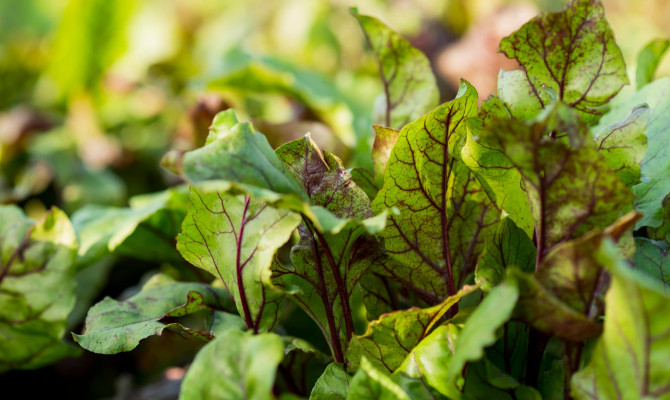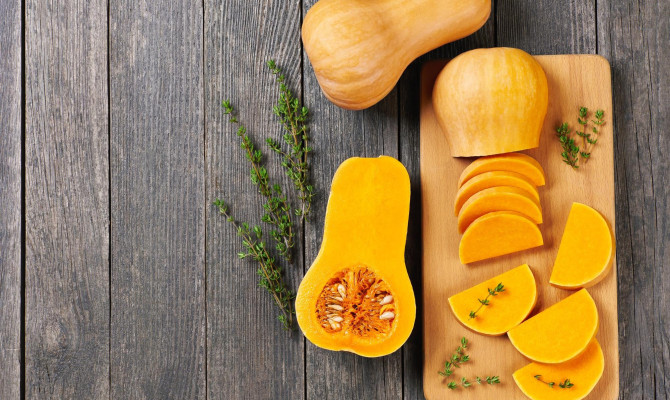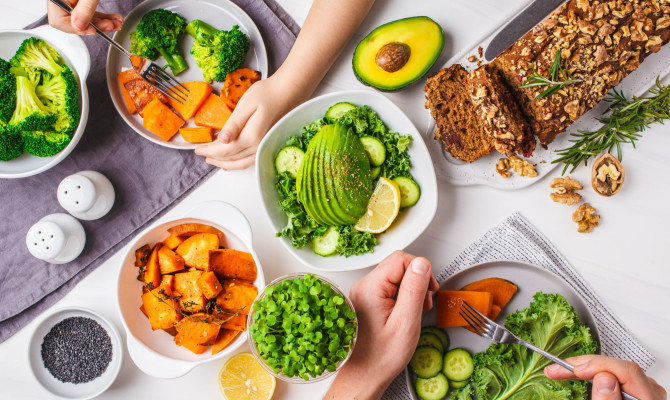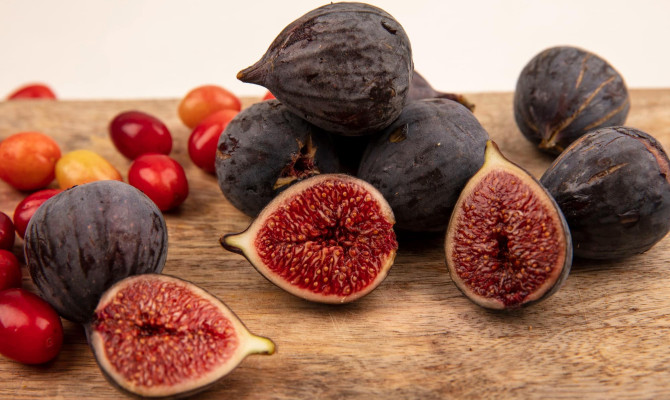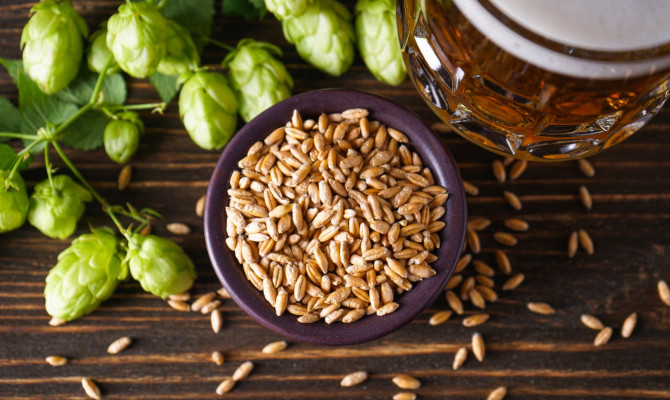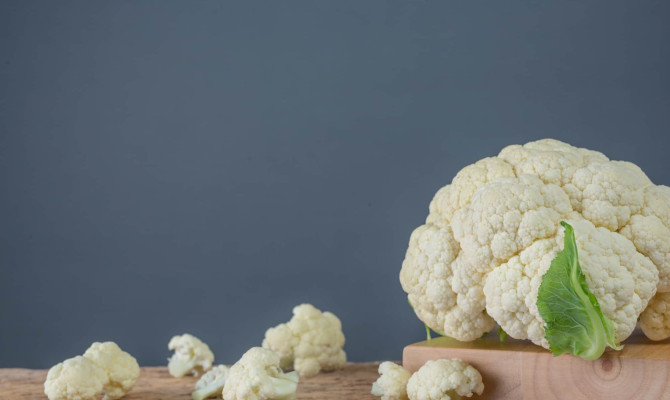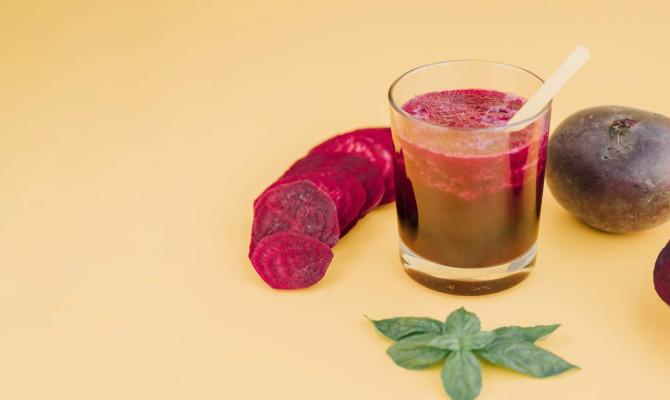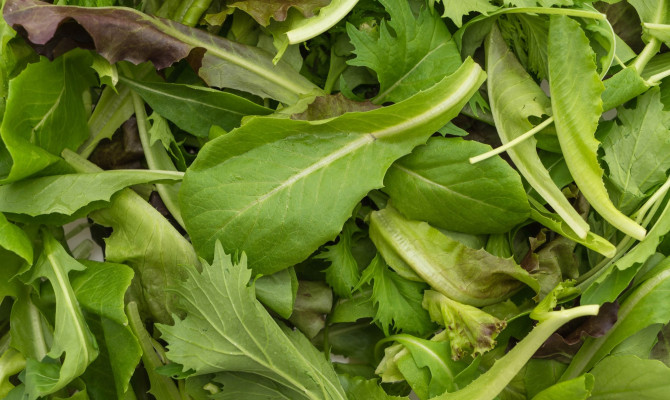Exploring Nutritious Green onion

- Green Onion
- 22 Aug 2023
Overview
About Green onion
Green onions are immature onions harvested early to use as vegetables. They belong to Allium and are relatives of garlic, leek, and Chinese onions. They don’t have a large bulb and have lesser flavor than mature onions.
Green onion has a round bulb with white scale leaves having vertical white lines at the bottom. The leaves that grow straightaway from the bulb are mild green, hollow, and elongated with longitudinal stripes.
The leaves and bulbs are versatile and go well with various dishes. One can eat green onions in both raw and cooked form.
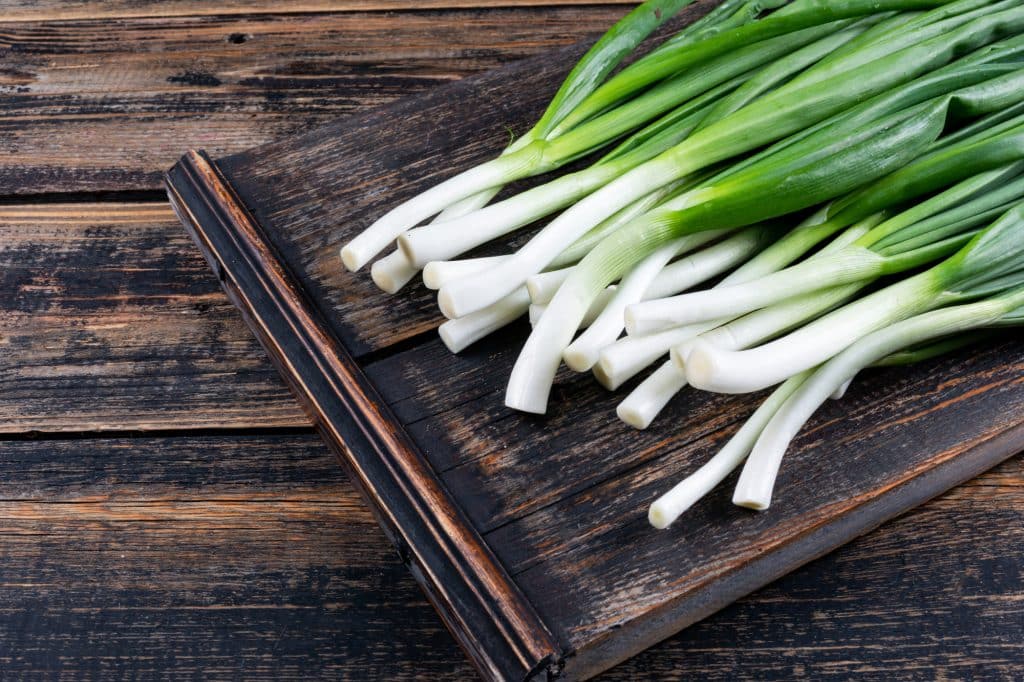
Scallion/Spring onion
- A scallion is a young green onion with bulbs slightly smaller than the green onions.
- Spring onions have white circular bulbs and round stems and are left to grow further for their longer leaves. Spring onions have matured bulbs than that of scallion and green onions.
- Green onions, scallion, and spring onions are all onions that belong to the same genus Allium.
Here are some quick facts about green onion
- Green onions are native to Central Asia, but now it is grown worldwide
- People reap green onions earlier than that other onions
- Green onions are perennial plants that are grown throughout the year without the need for replanting 1Overview| Researched based study from Sciencedirect.com
Nutrition
Nutrition of Green onion
100 grams of raw green onions consist of the following nutrients:
- Calories- 32 gm (gram)
- Water-89%
- Sugar- 2.3 gm
- Fat-0.2 gm
- Fiber-2.6 gm
- Protein-1.8 gm
- Carbohydrate-7.3 gm
- Folate- 16% of RDI (recommended daily intake)
- Vitamin K-173% of RDI
- Vitamin C-21% of RDI 2Nutrition| Researched based study from Usda.gov
Recommended daily intake is the standard daily intake of a particular nutrient in a food serving to meet the nutrient requirement of an individual.
Other vitamins and minerals
- Potassium
- Manganese
- Magnesium
- Calcium
- Vitamin A
- Iron
Fibers and vitamins have the following function in our body:
Fiber
- It helps soak up water and speed up the movement of stool in the intestine.
- It promotes gut health and prevents constipation
Folate
- It helps in the manufacture of white and red blood cells
- It helps in average tissue growth and cell execution
Vitamin K
- It is for the curing (blood clotting) process in our body
- It strengthens the bone health
Vitamin C
- It is vital for the growth and restoration of the tissues
- It is fundamental for healthy skin and bones
Potassium
- It is crucial for correct nerve and muscle functioning
- It is indispensable for maintaining the blood pressure in our body
Manganese
- It helps bodily processes to work appropriately
- It helps in building up the bones
Magnesium
- It supports the muscles and nerve functions
- It also keeps the usual bone health
Calcium
- It helps in blood clotting
- It helps in the maintenance of our bones and teeth
Vitamin A
- It keeps the eye healthy and maintains the normal vision
- It is also essential for immunity, cell growth, and reproduction.
Iron
- Iron helps in the transport of oxygen from the lungs to the tissues
- It assists in proper growth and development 2Nutrition| Researched based study from Usda.gov
Bio-actives in green onion
Zeaxanthin
- It is a pigment found in plants and vegetables
- It protects the eyes from the detrimental ultraviolet radiations of the sun and has antioxidant properties.
Lutein
- Lutein is a natural pigment present in many plants
- It conserves and improves eye health and has antioxidant and anti-inflammatory properties 1Nutrition| Researched based study from Sciencedirect.com
Health Benefits
Health benefits of Green onion
Green onions have the following health benefits:
- Enhances the heart health
- Strengthens the bone health
- Reduces the risk of cancer
- Enhances the immune response
- Helps with weight loss
- Improves the eye health
- Regulates the blood sugar
- Reduces inflammation
- Regulates healing process
Enhances the heart health
- Nutrients in green onion reduce the total cholesterol in the body
- It enhances the blood flow through the arteries and reduces the risk of heart diseases 5Health benefits| Researched based study from Nlm.nih.gov
Strengthens the bone health
- Nutrients in green onion maintain the bone mineral density
- It reduces the risk of bone fractures 3Health benefits| Researched based study from Nlm.nih.gov
Reduces the risk of cancer
- Nutrients in green onion prevent the abnormal cell growth
- It protects against lung, gastric, and prostate cancer 4Health benefits| Researched based study from Nlm.nih.gov
Enhances the immune response
- Nutrients in green onion relieve oxidative stress by nullifying the free radicals in the body.
- It prevents cell damage and helps the body fight infections 6Health benefits| Researched based study from Nlm.nih.gov
Helps with weight loss
- Fibers in green onion keep the stomach full and reduce hunger
- In animal studies, it decreased body weight and body fat 7Health benefits| Researched based study from Nlm.nih.gov
Improves the eye health
- Nutrients in green onion maintain the eye vision
- It prevents the development of eye diseases such as age-related macular degeneration10Health benefits| Researched based study from Nlm.nih.gov
Regulates the blood sugar
- Nutrients in green onion increase the insulin sensitivity
- In animal studies, it reduced the blood sugar level in diabetic rats 11Health benefits| Researched based study from Nlm.nih.gov
However, more research is warranted to prove the fact
Reduces inflammation
- Nutrients in green onion lessen the pain and swelling
- It decreases the possibility of chronic diseases such as diabetes and heart diseases 8Health benefits| Researched based study from Sciencedirect.com
Regulates healing process
- Nutrients in green onion help in fast recovery during injury
- It protects the body from excessive bleeding and blood loss 9Health benefits| Researched based study from Nlm.nih.gov
Side effects
Side effects of Green onion
Most people can well tolerate green onion when taken in food amounts.
However, some people might experience the following side effects:
- Itching
- Hives
- Nausea and vomiting
- Skin rash
- Swelling of the mouth, lips, throat and tongue
- Difficult breathing 12Side effects| Researched based study from Sciencedirect.com
Contraindications
Who should avoid eating Green onions?
As with any other vegetable, green onion has some downsides. People on certain medications should consume them in moderation.
People on anticoagulants (blood thinning medication)
- Green onions might decrease the anticoagulant drug effect when consumed in massive amounts.13Contraindications| Researched based study from Nlm.nih.gov
People with high sugar (diabetes)
- Green onion, when taken with diabetic medication, might lower blood sugar and cause symptoms such as excessive sweating, confusion, lightheadedness, and faintness
It might not be suitable for people with the following health condition:
- People allergic to plants of the Allium family, such as onions and garlic
- People with heart problems
Tips
Tips to include Green onion in diet
- Sprinkle sliced green onions on salads along with tomatoes, peas, and cucumber.
- Cook green onion with pasta and have it as an evening snack
- Put cooked green onions to the egg mix, flour, and soy sauce to make delicious pancakes
- Add the stem end of green onions to marinades for extra flavor to the food
- Add green onion to cauliflower fried rice to enhance the taste
- Use green onions as toppings and flavor different meals of your choice
- One can add green onions to stews and soups and relish the taste
- Green onions also taste great when grilled or pickled
Storage
Storage of Green onion
- Before storing green onions, remove and discard the damaged leaves—also, clear rubber bands or any packaging from the onions.
- Keep green onions in a plastic bag and put them in the fridge’s vegetable drawer. It remains fresh for up to three or four days.
- Store green onions away from foods that absorb odor, such as corn and mushrooms
- One can store onion bulbs without leaves in a cool and dry place for around two weeks 1Storage| Researched based study from Sciencedirect.com
Takeaway
Key Takeaways
- Green onions are delicious cheap, low-calorie vegetables with several health benefits.
- Green onion is easy to add to the diet and goes well with many recipes
- Green onions are an excellent addition to a well-balanced, healthy diet
- However, people on certain medications should consume it in moderation or consult a health care professional to know the definite amount to avoid unwanted side effects
Any feedback on this article?
 This Articles content was accurate
This Articles content was accurate Very Informative Article
Very Informative Article I have a question or a comment
I have a question or a comment
 This article contains inaccurate content
This article contains inaccurate content This article was not helpful
This article was not helpful I have a question or a comment
I have a question or a comment
We appreciate your helpful feedback!
Checkout our social pages
References
-
Science Direct
Allium fistulosum - an overview | Overview
-
U.S. DEPARTMENT OF AGRICULTURE
Green onion, raw | Nutrition
-
National Library of Medicine
Vitamin K and bone health | Benefits
-
National Library of Medicine
Allium vegetables and risk of prostate cancer: a population-based study | Benefits
-
National Library of Medicine
The Role of Vitamin K Status in Cardiovascular Health: Evidence from Observational and Clinical Studies | Benefits
-
National Library of Medicine
Possible roles of magnesium on the immune system | Benefits
-
National Library of Medicine
Fiber Intake Predicts Weight Loss and Dietary Adherence in Adults Consuming Calorie-Restricted Diets: The POUNDS Lost (Preventing Overweight Using Novel Dietary Strategies) Study | Benefits
-
Science Direct
Health effects of quercetin: From antioxidant to nutraceutical | Benefits
-
National Library of Medicine
Effect of vitamin K on wound healing: A systematic review and meta-analysis based on preclinical studies | Benefits
-
National Library of Medicine
Lutein and Zeaxanthin and Their Roles in Age-Related Macular Degeneration-Neurodegenerative Disease | Benefits
-
National Library of Medicine
The antidiabetic effect of onion and garlic in experimental diabetic rats: meta-analysis | Benefits
-
Science Direct
Biological properties of onions and garlic | Side effects
-
National Library of Medicine
Interaction of dietary factors with oral anticoagulants: review and applications | Contraindications












